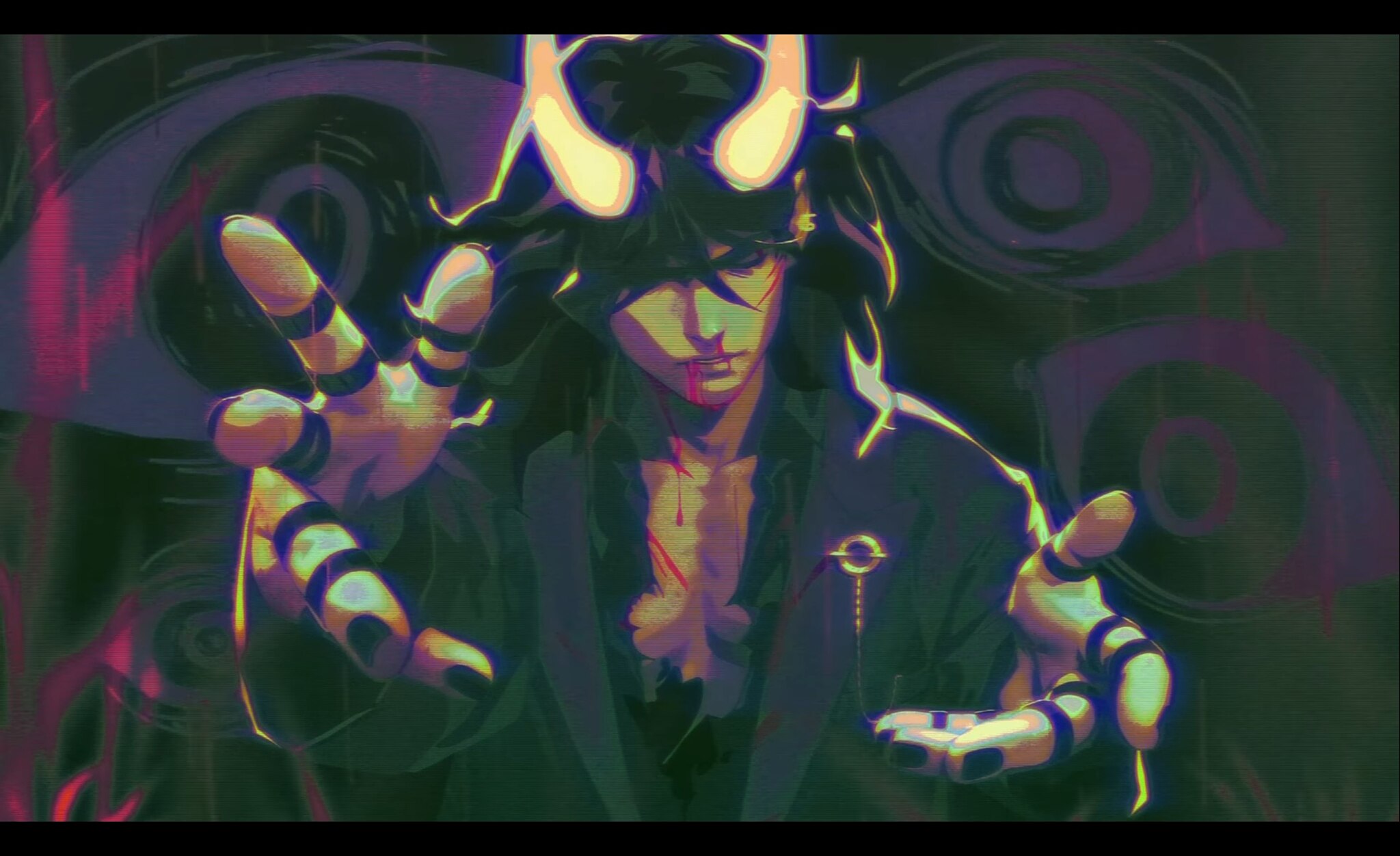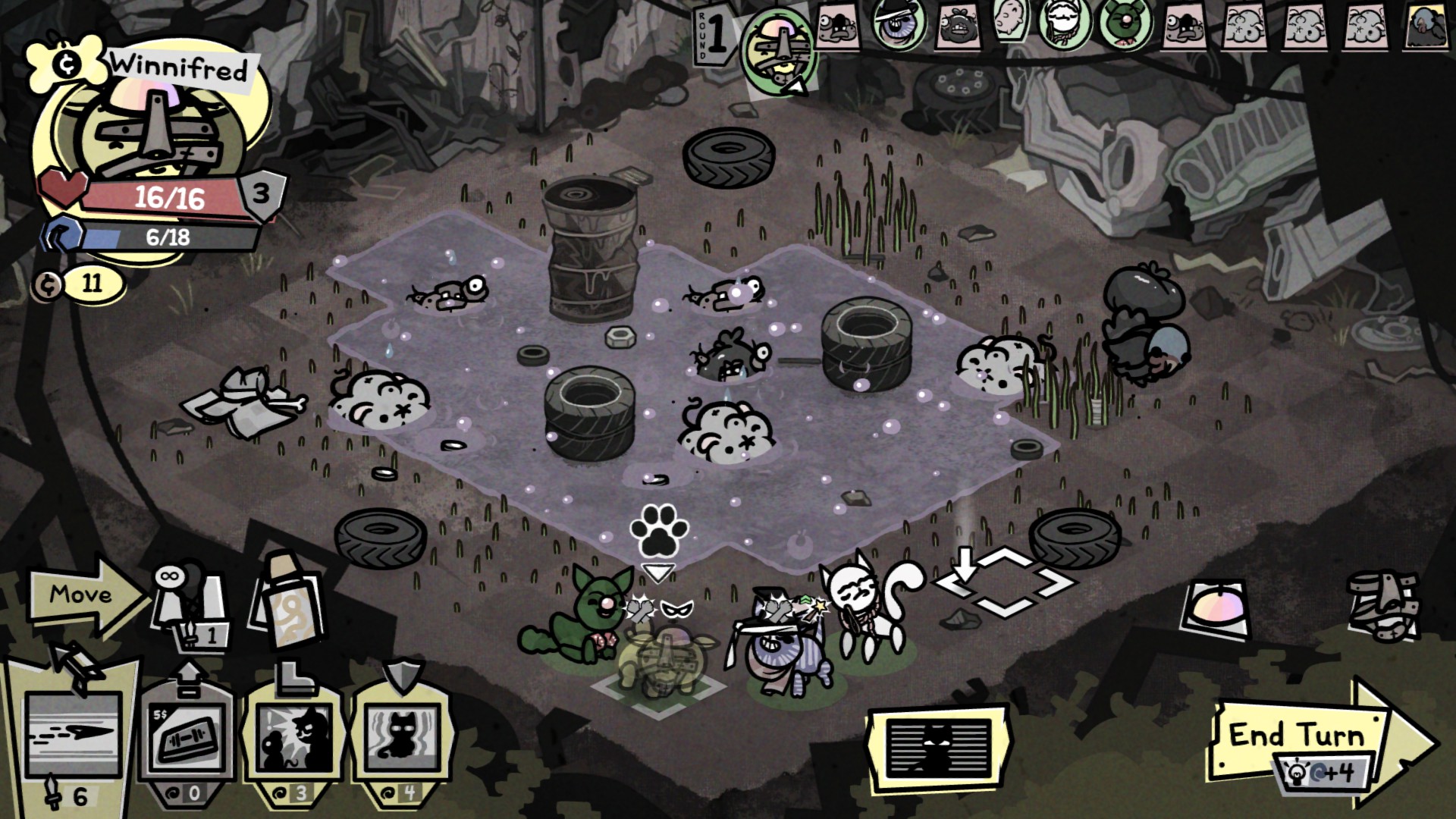Our Verdict
A stylish metroidvania with crunchy combat and a delightfully melancholy mood, but some will find it too safe and frictionless.
PC Gamer's got your back
What is it? A moody sci-fi metroidvania with rapidfire Smash-like combat.
Release date November 11, 2025
Expect to pay $18
Developer Heart Machine
Publisher Devolver
Reviewed on RTX 3060 (laptop), Ryzen 5 5600H, 16GB RAM
Steam Deck Playable
Link Steam
Possessors is a quiet game by most measures, but it starts all whips akimbo. It's set in a walled corporate city in the aftermath of a mysterious cataclysm. Teen protagonist Luca loses her legs during the calamity and is left for dead, but fortunately it's not long before she's possessed by a demon called Rhem, who grants her some new insectile legs on the proviso they collaborate on an escape from the ruined city. As far as pacts with the devil go, it's pretty rational. The 20-odd hour metroidvania that ensues has a lot to admire about it, but doesn't buck nor create any trends.
Before the fall, the corporate doyens of this walled city, Agradyne, siphoned a resource called Chroma from captured demons, which was used to power the batteries they sold. In the wake of the cataclysm, demons have escaped their vats and possessed everything from angsty teens through to pot plants.
That means Luca must fight against demon-possessed witches hats, demon-possessed security cameras, demon-possessed filing cabinets and more, usually with a baseball bat or a hockey stick. It also means that she's in constant dialogue with her possessor Rhem, who looks like what would happen if Astarion played bass in Type O Negative. These demons aren't fantasy demons: they're hipster demons, whose insouciance hides an undercurrent of trauma born of their status as sites of resource extraction for greedy corpos.
Full motion
Possessors is set in a 3D world played from a strict sidelong perspective. Luca and all enemies are meticulously animated 2D sprites, lending the whole affair an artful, urban fantasy flair that looks brilliant in trailers but takes time to come to grips with in practice. The 3D world is presented in muted, shadowy, dystopian colour schemes, while the sprites are fluorescent and crisply readable. If it reminds me of anything, it's those 1990s films like Roger Rabbit that blended—occasionally very awkwardly—live action with animation. I guess it's no coincidence that Possessors itself is set in a fictional 1992.
This art style contributes to occasional imprecision in platforming and combat: it's not always super obvious what exact part of a crumbly ledge can be grabbed, for example, and sometimes stylish foreground art can obscure the action. There are other problems that aren't strictly to do with the art style too: Luca can't look down, and I encountered many situations where it would have been useful if she could. This is a platformer with frequent emphasis on precision, but it's full of leaps of faith.
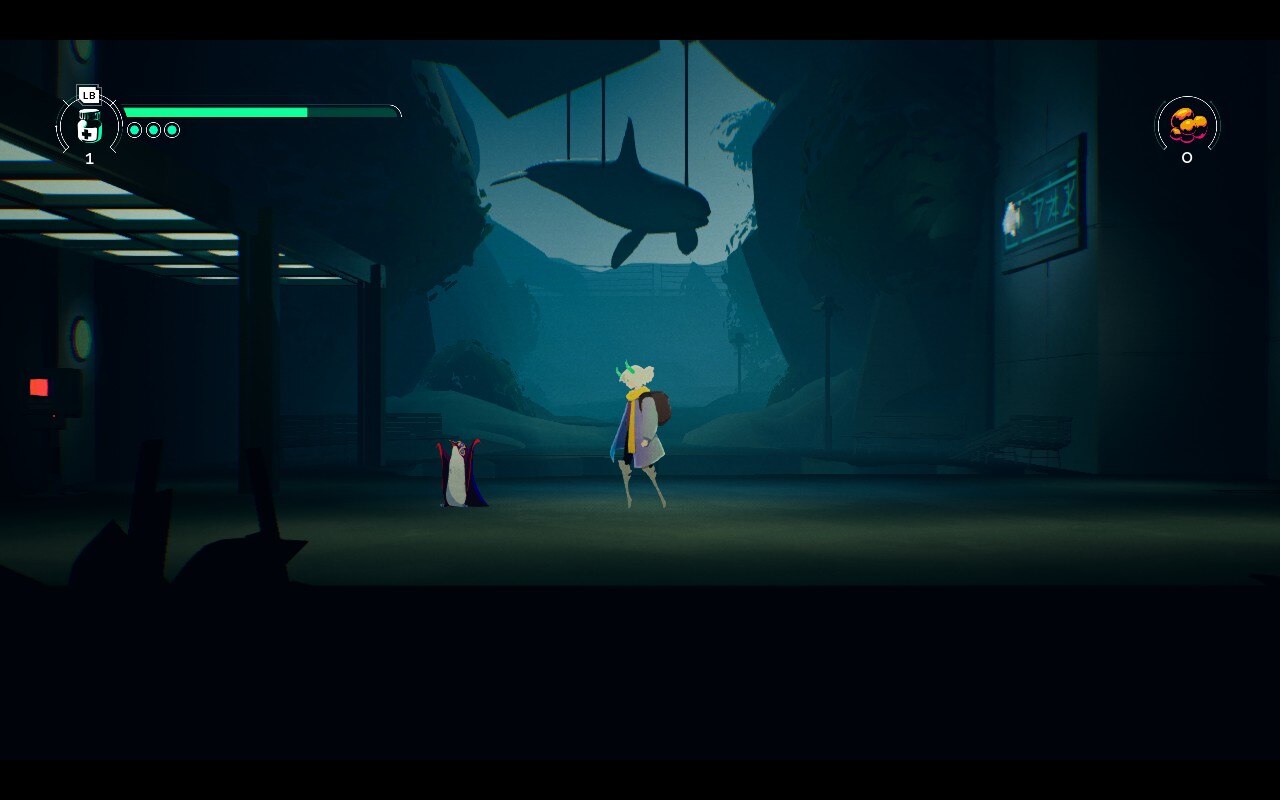
Where precision is concerned, the combat fares better. A lot has been made of Posessors' resemblance to Smash Bros, and while I can't really vouch for that, I can confirm the fighting here is really fun in its essence. Luca can wield a variety of primary weapons—kitchen knives, hockey sticks, a baseball bat—but she can also equip three special weapons. I usually used the special katana for a quick burst of damage, but there's also stuff like the computer mouse, which works like a ball and chain, and the cell phone, which sends out a shockwave that can stun enemies. Luca has a whip for swinging between hooks and dragging weaker enemies within melee range, and her parry can volley back projectiles.
I never felt distraught or angry playing Possessors like I did Silksong.
The combat is fun, often madcap, but ultimately simplistic: It takes hours for this game to show its teeth. People familiar with modern 2D action games will trounce most early bosses on their first attempt, and while Heart Machine has certainly mastered the stately flux of whacking, dodging and parrying—it feels precise and impactful—its attempts to incorporate aerial movement generally feel wasted: In a game where lethal projectiles are flying in every direction at once, it almost always pays off to stick to the ground and play defensively. I didn't need to learn new strategies after the five hour mark: I just needed to execute them more quickly and reliably.
Keep up to date with the most important stories and the best deals, as picked by the PC Gamer team.
Not that the absence of headache-inducing combat is a mark against Possessors. In fact, as the game progressed I admired its dedication to a gentle difficulty curve in an age where nearly every indie action game feels like a pretext for bragging rights (the studio's influential Hyper Light Drifter can partially be blamed for this). While the loosely interconnected map sprawls as it should, little dots mark where I haven't explored yet: not once did I ever feel lost or confused. Dying means I lose the currency I've collected, but that's OK because I can deposit it for safe keeping at regular save points anyway. I never felt distraught or angry playing Possessors like I did Silksong. It goes down smoothly, perhaps too smoothly for some.
Devil in the detail
This gentleness feels of a piece with its story, which contrasts interpersonal exploitation (horrible friends taking advantage of you) with its abstracted industrialised version (corporations literally farming you for commodities). The tone of the writing deliberately wavers between '90s anime and Young Adult fiction, but Heart Machine still manages some admirable restraint in a pop sci-fi genre that can be bullheaded about flagging its lofty themes. I came to admire how the game's sometimes awkward commingling of 2D and 3D art mirrored the contrasting existential conundrums at the heart of Possessors.
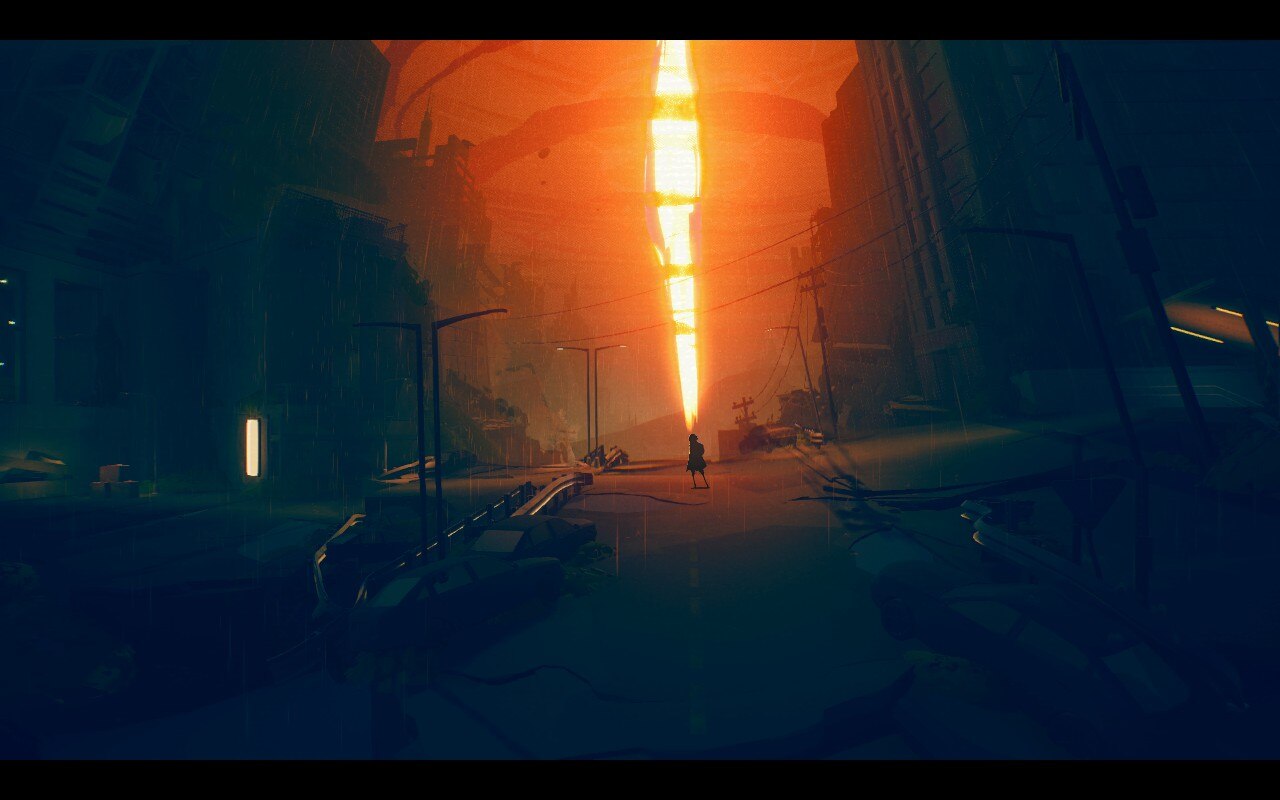
The soundtrack is beautiful and varied too, ranging from lightly melancholic '90s electronic jazz through to starry-eyed city-pop ballads. It helps the game work gently towards a climax that feels as overblown and cathartic (read: quite emo-adjacent) as befits a story about a teen and their buddy demon navigating a world in irredeemable crisis, but it also leaves room for a broader, more reflective approach to its storytelling.
None of the discrete environments in Possessors are especially novel—we visit corporate buildings, luxury apartments, ruined aquariums and vanquished libraries—but the music, not even the sound design, dabs a moody subtlety onto the project that feels like a secret weapon. Another studio might have opted for the usual paint-by-numbers symphony or chiptune throwback.
There are occasionally annoying imperfections. Areas with water tended to tank the frame rate on my two generations old gaming laptop, and I met with one annoying bug that basically erased a whole room (thankfully, approaching it from a different entry rematerialised it, but I could never use that one broken entry).
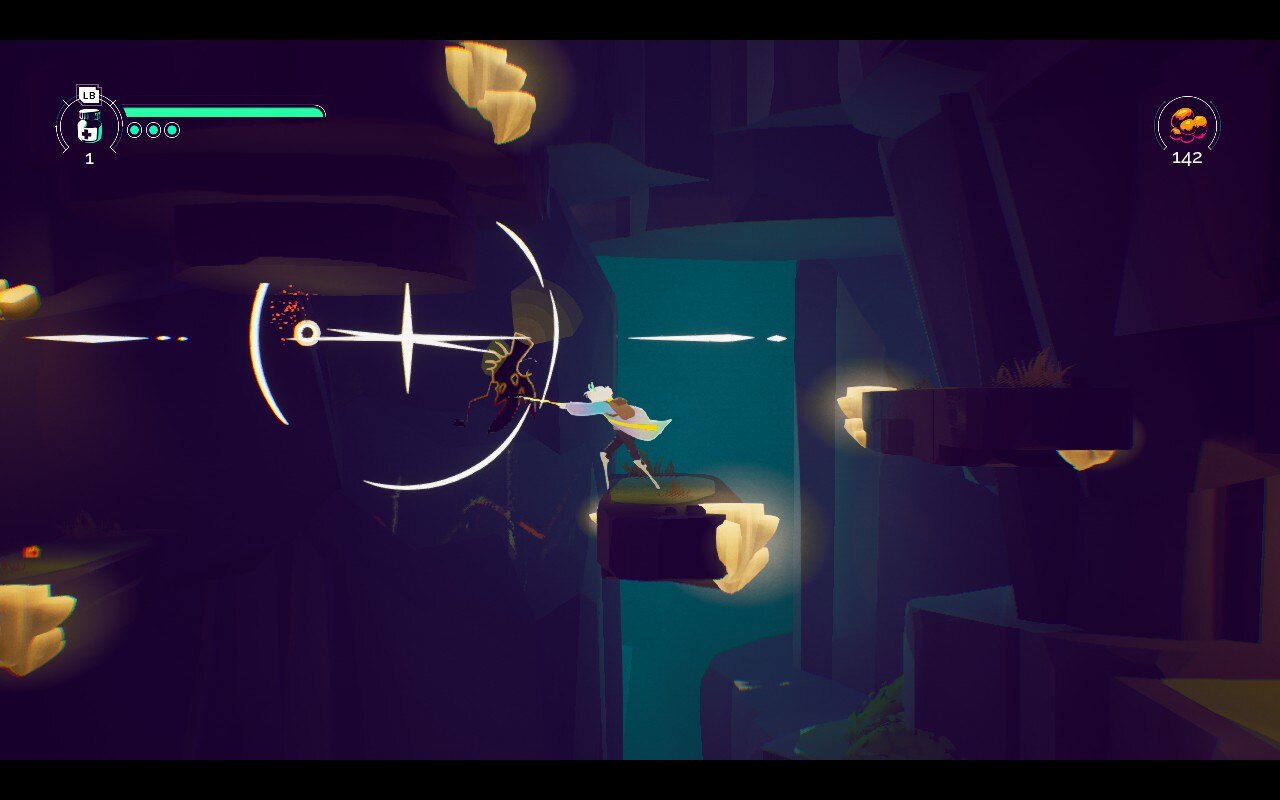
The upgrade system is weirdly opaque too: I learned very late that I needed to upgrade my weapons in order to apply power-ups (or "affixes") to them. That's on me maybe, but the health and healing potion upgrade system is needlessly unclear too: upgrade items cannot be "used" and for hours I expected to encounter an NPC who would help me apply them. But no: these are automatically used once I've reached some mysterious milestone of having five, or four, or six—I still don't know how many. Due to the vagueness of this system I quickly lost interest in collecting things.
Heart Machine nailed 2D pixel art movement right from the start with Hyper Light Drifter, but transitioned awkwardly into 3D with Solar Ash. Now they've blended the two, and while I don't think Possessors is as revelatory as it perhaps needs to be in 2025's unsustainably competitive market, it's definitely the work of a studio with an idiosyncratic approach to graphics, movement and storytelling.
Frustratingly, Heart Machine's future doesn't seem guaranteed at present. In a better world, quiet missives like this could make a dime or more, sustaining the livelihoods of all involved. That's not the reality right now, especially for a studio whose major early access gambit has clearly failed. As it stands, Possessors needs to be seen for what it is in this climate: a humble, almost plaintive metroidvania with some great ideas, engineered for people alive to its concerns. It's a quiet little work sent out into a barking mad climate.
A stylish metroidvania with crunchy combat and a delightfully melancholy mood, but some will find it too safe and frictionless.

Shaun Prescott is the Australian editor of PC Gamer. With over ten years experience covering the games industry, his work has appeared on GamesRadar+, TechRadar, The Guardian, PLAY Magazine, the Sydney Morning Herald, and more. Specific interests include indie games, obscure Metroidvanias, speedrunning, experimental games and FPSs. He thinks Lulu by Metallica and Lou Reed is an all-time classic that will receive its due critical reappraisal one day.
You must confirm your public display name before commenting
Please logout and then login again, you will then be prompted to enter your display name.
